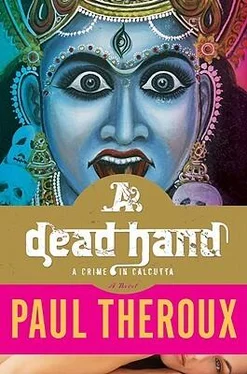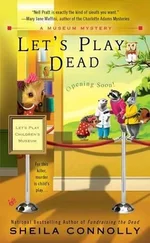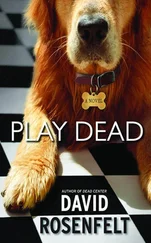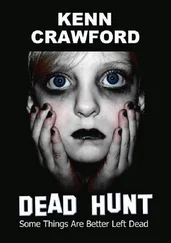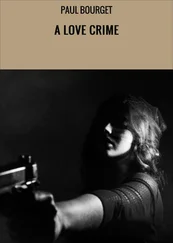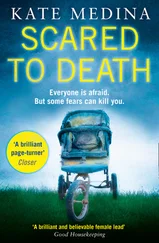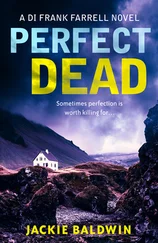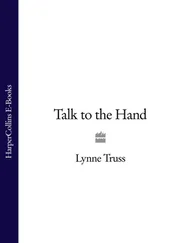"Was I asleep?"
"For quite a while."
"Sorry."
"I love watching you sleep."
My body was heavy. I lay, unable to move, while Mrs. Unger caressed my head, her sari like a wisp against my skin.
"Will you do me a favor?"
"Yes. Anything."
She laughed. "You don't know what it is."
"Anything," I said.
"I want to go to Assam. Will you go with me?"
"Yes. Anytime." I was going to elaborate but stopped myself, and she heard the catch of qualification in my voice.
"Go on…"
"Charlie will hate me even more."
"He hates Indian trains." She pinched me affectionately. "You sound as if you care, and I know you don't. But why should you?"
Because I was not sure when I'd be back in Calcutta, I took a taxi the next day to Dalhousie Square and walked to police headquarters to see Dr. Mooly Mukherjee. I deliberately had not brought Howard along. I wanted to receive the news of the child's identity in confidence. In the lobby, I was given a badge and ushered to his office as before by a chowkidar, strutting with ceremony in front of me.
"Do come in," Dr. Mukherjee said warmly, inviting me to sit. He shut his office door, stroking his mustache as he did so.
His friendly manner should have indicated that Dr. Mukherjee had good news, but I had been in Calcutta long enough to find his smile ominous. His warmth meant that he had no news, that he knew nothing; he was going to break it to me gently that the dead hand was a riddle.
He was smiling as he said, "Normally, body part can provide us masses of information and usable data. This" — he held the plastic pouch with his thumb and forefinger—"is one of those rare instances when we can find out very little. It is a mystery."
"Age? Sex?"
"Certainly male child. Maybe ten years of age. Could be a bit more or less."
"Is there any way you can match the fingerprints?"
He smiled under his mustache, lifting it with his smile, because the news was so unusual.
"Not possible in this happenstance."
"Because you don't have matching fingerprints on file?"
"Because," and he smiled again, "body part is not having fingerprints."
"I don't understand."
"Fingertips perfectly smooth. Not a single whorl or loop."
"They've been tampered with!"
"Not at all, in my opinion," he said. "That is why I inquired as to occupation. In some trades fingerprints are abraded. Masonry work. Men who make mud and clay images for puja. Rough carpentry. Tilery. Ironmongery. Pavers — lads making roads."
"What are you saying?"
"Such people lose fingerprints by process of abrasion. Instead of print, smoothness is there. As I said previously." He sighed, seeming irritated by my bewilderment. "This person was perhaps engaged in just such occupation. These are the fingers of a hand worker, someone using his fingers many hours a day. Brickwork. Who can say?"
"So you didn't find anything?"
"You are entirely mistaken, sir. What we did not find is very revealing. This body part is interesting for what is not there."
"What shall I do?"
"Keep safely. It is a piece of a larger puzzle. You need more pieces." He tapped his finger on his desktop and wagged his head knowingly. " Cholche cholbe, we say in Bengali. Keep on — it continues."
"The rest of the body was cremated, I understand."
"Possibly other pieces of puzzle will occur in other forms."
I took the plastic pouch from him; he had been gesturing with it. Out of respect, I didn't want to put it into my pocket. It seemed offensive even to be holding it.
"I examine many pieces of evidence in the course of my investigations," Dr. Mooly Mukherjee said. "Spectacles can seem sad — one imagines the person's eyes. Shoes or sandals — the foot always leaves a distinct imprint or shape. I have had occasion to examine human ears, the result of violent altercations. Bite wounds — the dentition is apparent, a reminder of our animal nature. But this, sir, this small boy's severed hand with its indication of hard manual labor, is the saddest thing. It says nothing and it says everything. It is like a holy relic. It is a most melancholy object."
He spoke with dramatic pauses, stroking his mustache, speaking to the window, a kind of oration, and when he had finished, he stepped to the door and opened it.
"Left at pillar. End of hall to the staircase. Please leave ID badge with receptionist." He indicated with a downward swipe of his hand that he had something more to say. "Ultimately, I should be immensely relieved to hear that body part underwent decent cremation, with proper puja, in fullness of time."
No fingerprints on the dead hand. As if the skinny, half-mummified little thing were not melancholy enough, this news made it seem sadder in its anonymity, like a corpse without a face.
"It's what I used to do," Mrs. Unger said a few days later, the afternoon sun showing in streaks of dust-glow beneath the great open canopy of Howrah station. Balraj supervised a porter who carried her large bag on his head, my smaller one in his right hand, and our basket of water bottles and tiffin tins in his left. She had the tickets; she'd even hired bedrolls for us both.
"Platform jix," Balraj said with a glance at the departure board.
She said, "Let's go before the crowds get there." She snatched at my hand and I felt all her anxiety at being in public, exposed to the mob. Though her grip was hot and tight, her nails sharp, when she spoke again she sounded casual. "I like arriving fifteen minutes before departure. And there's no one here to frisk me."
"I want to frisk you. I want to pat you down."
Inclining her head so that Balraj couldn't hear, she said, "That might not be enough."
I was elated. We rarely talked like this — the facetious and forgiving innuendo that lovers use. But today was something special. It was our first night together, and on an express train to Gauhati in Assam.
"This way, madam. What bogie, madam?"
"Looks like ten," she said, lifting her ticket to verify it.
Balraj passed this information to the porter and snapped at him to hurry. He seemed impatient, and now I saw why. We were being watched by a hard-faced woman in a filthy sari, her face smeared with makeup, her big feet in broken sandals. Her hair was matted and thick with dirt. She whined a little, and she nodded to get our attention, seeming to peck at us with her sharp nose.
Even beyond the barrier at platform six the ugly woman followed, legs wide apart, carrying a shoulder bag. Mrs. Unger saw her but said nothing, and when the woman tried to get closer, Balraj blocked her way.
We found our coach and our compartment, a four-berth sleeper. She said, "Don't worry, I paid for the other two berths, so we'll have it all to ourselves." The berths were narrow and unpromising. I could not imagine lying next to her on one of these badly padded shelves.
An aggrieved and nagging voice just outside in the corridor made me look up. It was the ugly woman— bhikhiri, Balraj said, a beggar, and he stood in front of her, screening us, as the porter swung our bags onto the upper berths.
"Sorry, madam," Balraj said, apologizing for the gabbling woman.
"Give her some rupees," Mrs. Unger said. And to the woman, " Dam koto? "
"She wanting two hundred, madam."
Mrs. Unger smiled at the amount. The woman was still talking in her scratchy voice. She seemed to be threatening, and her reddened eyes looked hostile.
"What is that language?"
"Assamese, madam. She wanting to speak to you."
"What about?"
"She say she not normal, madam."
Mrs. Unger reacted sharply, made a face, shook her head, then said, "How unfortunate. But how does it happen that she's in first class? I think we should call the conductor."
Читать дальше
